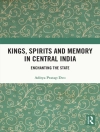Former Israeli intelligence officer Moshe Shemesh offers a fresh understanding of the complex history and politics of the Middle East in this new analysis of the Palestinian national movement. Shemesh looks at the formative years of the movement that emerged following the 1948 War and traces the leaders, their objectives, and their weaknesses, fragmentation, and conflicts with their neighbors. He follows the formation of the Sons of Nakba, the establishment of Fatah, the reframing of Jordan as analogous with the Palestinian cause, and the creation of the Palestine Liberation Organization and its new expression of nationalism until the 1967 War. With unprecedented access to Arabic sources, Shemesh provides new perspectives on inter-Arab politics and the history of the intractable Arab-Israeli conflict.
Зміст
Acknowledgements
Aims and Scope
Part I
The Leadership Crisis of the Palestinian National Movement, 1937–1963:
The Decline from Power of Mufti Haj Amin Al-Husayni
Part II
National Revival:
The 1950s as the Formative Years of the New Palestinian National Movement
Part III
The West Bank Palestinians under Hashemite Rule:
The ‘Palestinization’ Process in the Shadow of Egyptian Subversion and Influence
Part IV
Ahmad al-Shuqayri: Between the Arab Hammer and Palestinian Anvil, 1964–1967
A Predictable Failure of Leadership and the Peak of a Leadership Crisis
Conclusion
Bibliography
Index
Про автора
Moshe Shemesh is Associate Professor of Middle Eastern Studies at Ben-Gurion University of the Negev and Senior Fellow at the Ben-Gurion Research Institute. He is author of Arab Politics, Palestinian Nationalism, and the Six Day War: The Crystallization of Arab Strategy and Nasir’s Descent to War, 1957-1967.












